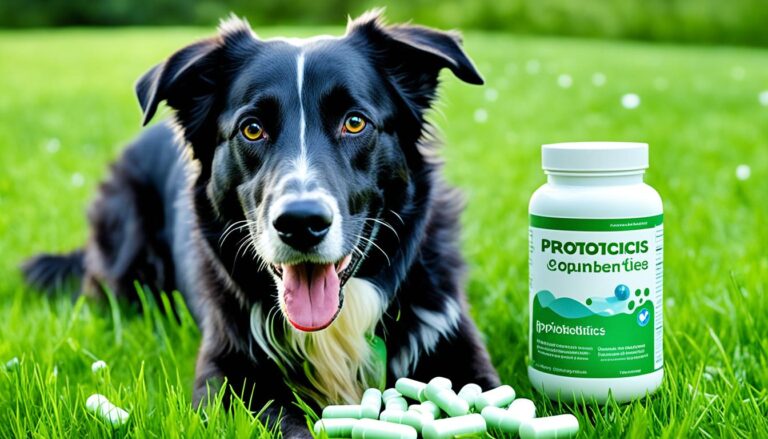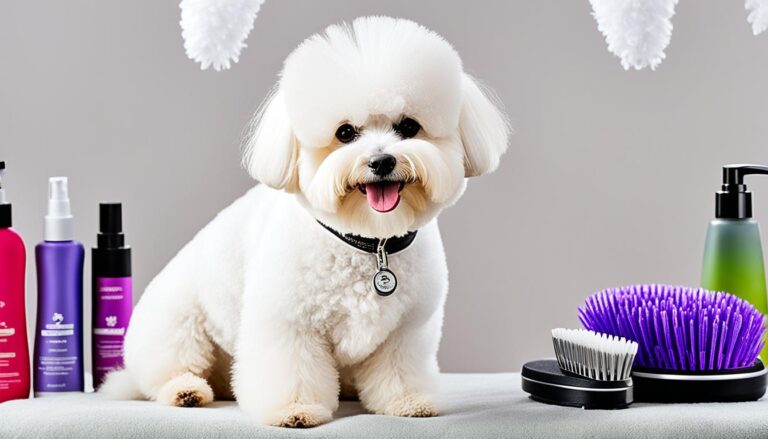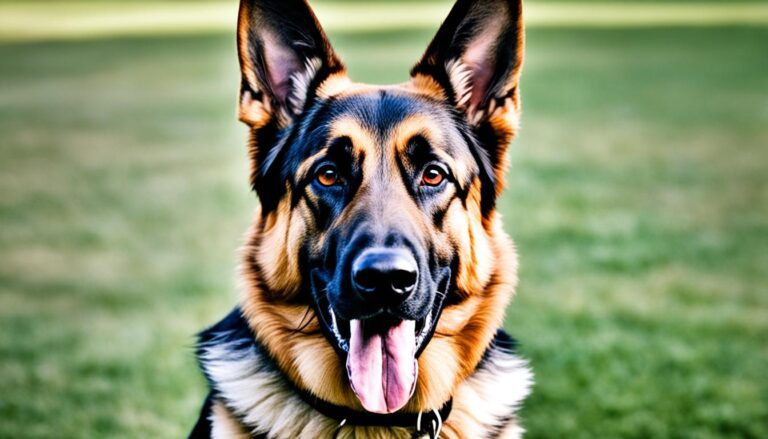Discover If German Shepherds Have Naturally Pointed Ears
The German Shepherd is very well known. Its black and tan coat and pricked ears make it stand out. But, are all their ears naturally pointed and erect?
It’s interesting to look at breed standards and ear genetics. They can tell us about this unique feature.
Key Takeaways
- German Shepherd puppies are born with soft, floppy ears that should start standing up between 6-10 weeks of age.
- The American Kennel Club’s breed standard calls for moderately pointed, erect ears in German Shepherds.
- Factors like teething, nutrition, and ear health can affect whether a German Shepherd’s ears remain naturally pointed.
- Techniques like taping or gluing can help encourage pointed ears, but proper puppy care is key.
- Most healthy German Shepherds will develop their characteristic pricked ears with time and the right care.
Do German Shepherds Have Naturally Pointed Ears?
The German Shepherd is known for its pointy ears. At first, their ears are soft and flop over. But, as they get older, the ears stand up and become pointed. This change happens as the ear’s cartilage and muscles grow.
Breed Standards and Ear Shape
According to the American Kennel Club, German Shepherds should have pointed, upright ears. This type of ear shape is the best for the breed. But, some Shepherds might end up with different ear shapes. This could be because of genetics or other factors.
Genetics and Ear Conformation
German Shepherds’ ear shapes mainly come from their genes. Different genes can mean ears that point up differently. Good breeders pick dogs carefully to keep the breed’s look the same.
Puppy Development and Ear Positioning
As German Shepherd puppies get older, their ears change. They start off floppy but become upright. This usually happens between 6 to 10 weeks old. Yet, some puppies might take longer to get their ears to stand up right.

Common Reasons for Floppy Ears in German Shepherds
German Shepherd puppies might have floppy ears at first. This happens because of teething, not eating well, and health problems. By knowing this, owners can help fix their puppy’s ears as they grow.
Teething and Calcium Redistribution
When puppies are teething, their body needs more calcium for new teeth. This makes the cartilage in their ears weak. As a result, their ears may droop for a while. But, this is only while they are growing up.
Poor Nutrition and Vitamin Deficiencies
Not getting enough good food, like calcium and vitamin D, can also make ears droop. These nutrients are key for strong ear cartilage. So, feeding a balanced diet is very important for young German Shepherds.
Ear Infections and Mites
Problems like ear infections and mites can also make ears droop. They cause pain and swelling that stop the ears from standing up. Seeing a vet quickly and getting the right treatment is the best way to solve this.
Most of the time, floppy ears in German Shepherds puppies are not a big worry. They usually go away with the right care. Just remember: understanding why this happens helps owners take good care of their puppy. This ensures their ears grow strong and stand up straight.
When and How to Correct Floppy Ears
If your German Shepherd’s ears don’t stand up by 4-5 months, don’t worry. You can try a few things to help. You might use taping or “posting.” This means using special tape to gently hold the ears up. Another way is ear gluing, which uses a special glue to keep the ears in place.
Taping or Posting Techniques
By taping or posting, you help the ears shape up right. This encourages the right muscles and cartilage to grow. It may take weeks or months, depending on your dog. Just make sure to tape in the correct way to not hurt the ears.
Ear Gluing Methods
Ear gluing is like a fast-track to get floppy ears stand up. With a special glue, your dog’s ears can look right in just a few weeks. But, like taping, using the right method is key to keep your dog safe and happy.
Importance of Proper Puppy Care
Taping and gluing are good solutions, but focusing on your pup’s care is best. A good diet, hygiene, and care are crucial. Always keep their ears clean to stop infections. Don’t use supplements, though. With the best care, most German Shepherds will have perfect ears as they grow.







